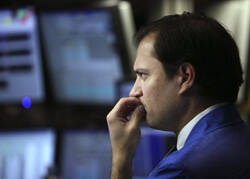A little more than 100 years ago, the financier J. Pierpont Morgan rushed back from a church convention in Richmond, Va., to organize the financial leaders of the day to stem the Panic of 1907. That financial crisis, with parallels to our own, spun out of control as the New York Stock Exchange lost 50 percent of its value, depositors withdrew their savings from banks, and liquidity contracted to a trickle. Morgan pledged large sums of his own money and convinced other financiers to join him in rescuing the economy and preparing the way for reforms that eventually established the Federal Reserve System, the U.S. central bank.
Secretary of the Treasury Henry M. Paulson, along with Federal Reserve chairman Ben Bernanke, has orchestrated the government’s efforts to meet the present financial crisis. But though banks and other financial institutions, like the insurance giant A.I.G., have benefitted from the government’s bailout efforts, no leader in Morgan’s mold has emerged from the private sector to provide leadership in the crisis. The one exception is the billionaire Warren Buffett, who made a $3 billion investment in General Electric and then $5 billion in Goldman Sachs to show his confidence in the economy.
Instead, until New York’s Attorney General Andrew Cuomo brought pressure on Wall Street firms to disclose information on executive compensation and bonuses, the large banks and investment firms continued to protect high salaries for their executives and make plans for bonuses. Cuomo is telling executives to assume their responsibilities and reform their businesses and their lifestyles before he forces them to. Reform is the order of the day. The ratio of executive compensation to worker salaries in the United States is still the most exaggerated in the world, 344 to 1 in 2007. At one time, those at the top might have argued that the market dictated their excessive rewards; but the market, as we knew it, is no longer. Like it or not, what we have for now is state capitalism; and big bank executives, with some exceptions, are on the public dole.
It is difficult to find investment bankers or hedge fund managers who have not been tarnished by the Wall Street bust. Tainted executives are found both inside the Bush administration—suspected by some of “crony capitalism” for its lack of transparency in allocating the aid made available under the new Troubled Assets Relief Program—and inside president-elect Obama’s transition team.
But if the financial sector as a whole has been maimed by the subprime loan problem, all will benefit from those who speak out about executive responsibilities: for the miscalculations that brought harm to so many (none has yet even said, “I am sorry”), for accountability in handling new government loans and investments and for suggestions on a redesign of the financial sector. Recovery demands more than emergency measures to keep the economy going. It requires the will to make reforms, as in 1907 and 1933, to prevent financial collapse from recurring and the vision to stimulate innovation without ever again letting the financial sector grow out of sync with the economy as a whole. Business does have the human capital to lead the way. People like Buffett and Jamie Dimon, the chairman of J. P. Morgan Chase who has thus far escaped the crisis with his reputation intact, are among those who have the intelligence, the knowledge and the powers of persuasion to guide the way.
To reassure public opinion and foreign markets in the meantime, greater transparency and accountability are required on the part of both government and business. The Congress and the Treasury need to activate the oversight programs written into TARP. It would also be wise for the Federal Reserve to acknowledge publicly the $2 trillion in loans it has quietly made to stabilize markets. The function of TARP was to restore liquidity and so sustain economic activity. Government buy-ins and loans ought to be conditioned on their proper use. For the recipients of government funds—though a few solid institutions were forced to accept them for the good of all—buying up other banks, paying dividends and executive bonuses are not compatible with that goal.
If low-performing financial institutions do not establish reasonable salary caps for executives, declare an embargo on bonuses and set improved capital standards for lending, procedures ought to be put in place to demand the return of government funds. If the financiers will not clean up their own houses, then government should act; and if government regulators are too cozy with those under regulation, then Congress and the public need to insist on responsibility. But the country and the economy will be better off if business leaders themselves, whether they are untainted or repentant, take responsibility for the past—and the future.








